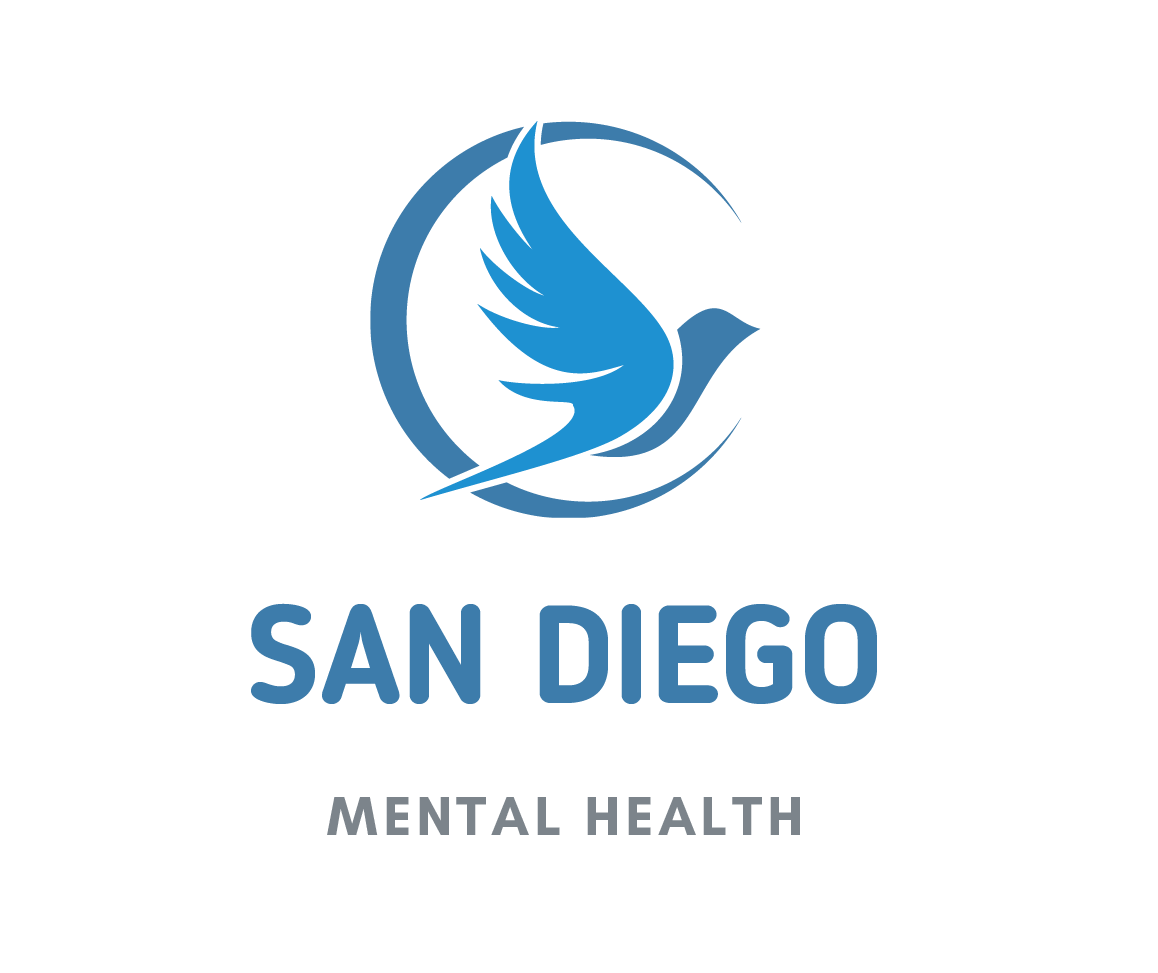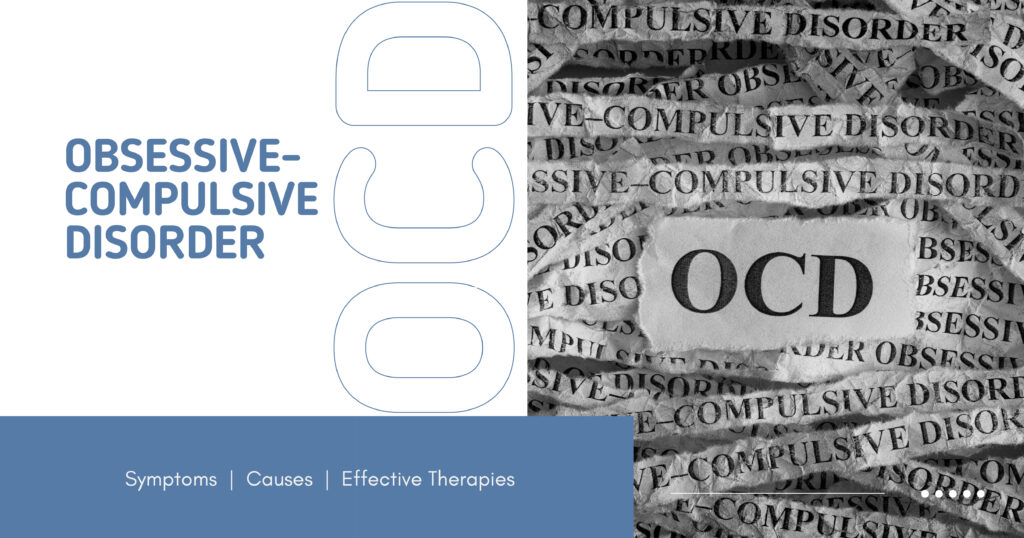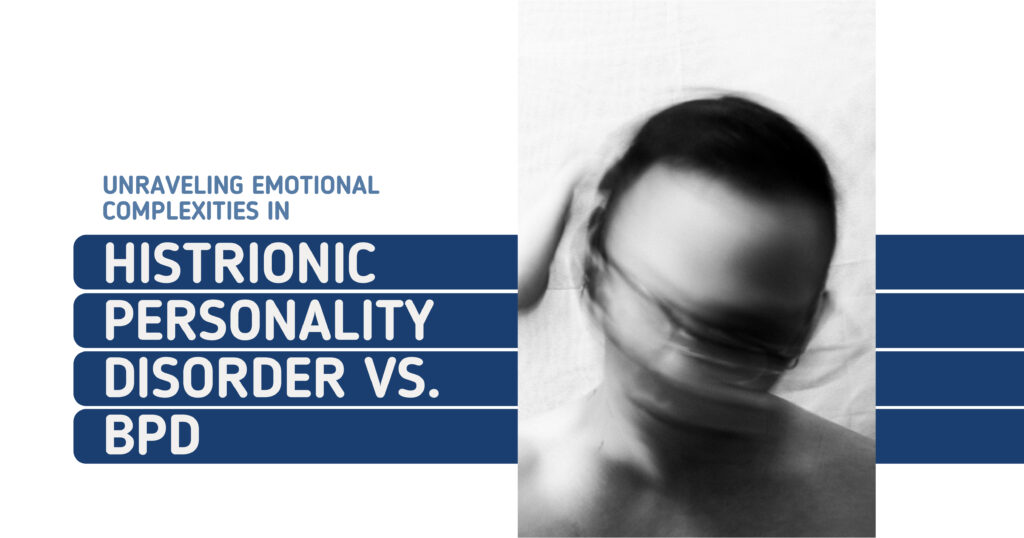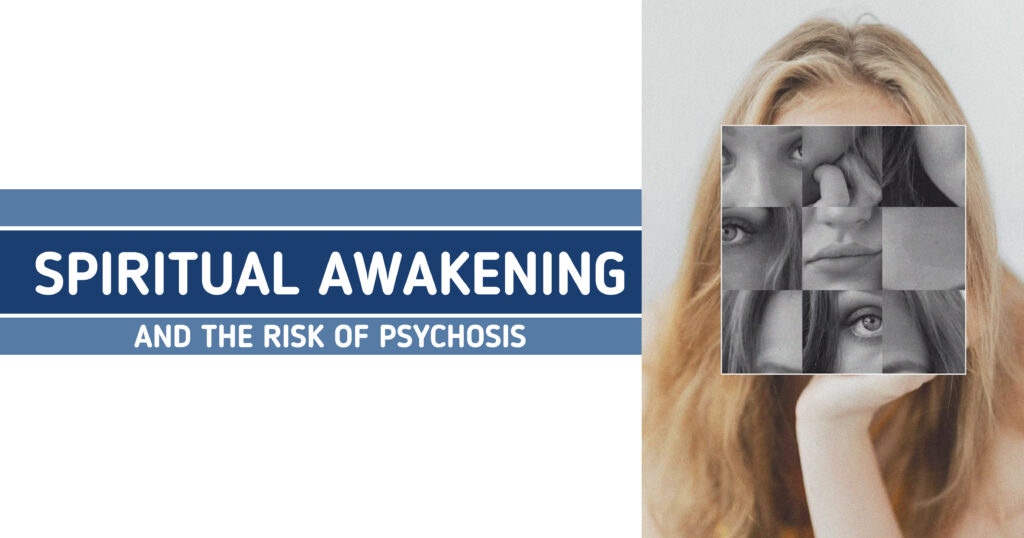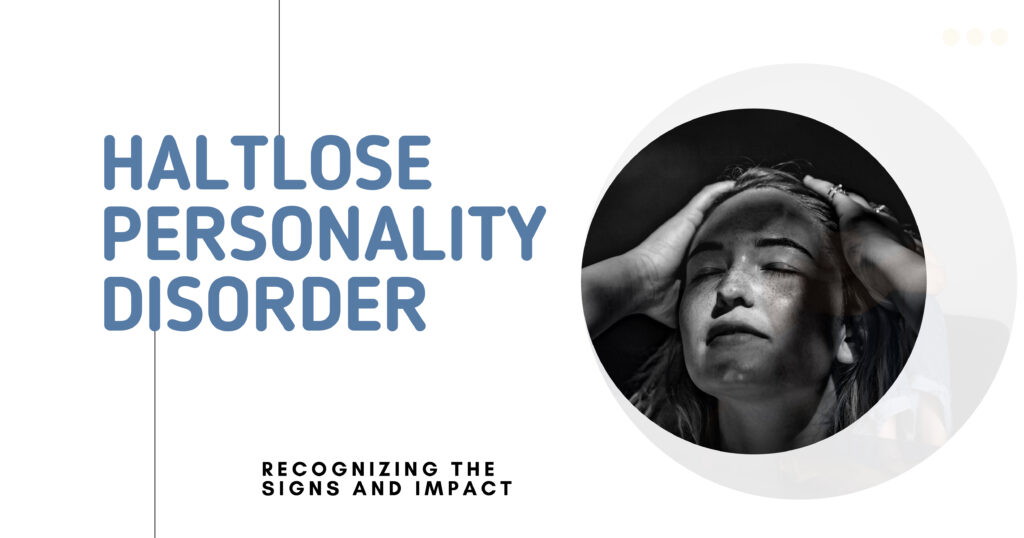Obsessive-Compulsive Disorder, or OCD, is a mental disorder characterized by persistent and intrusive thoughts, known as obsessions, that drive individuals to engage in repetitive behaviors or mental acts, called compulsions. Imagine a relentless loop of anxiety where you can’t escape the cycle of worry and ritualistic actions. That’s what OCD can feel like.
People with OCD might experience intense feelings of anxiety when they have certain thoughts, which leads them to perform specific actions to alleviate that anxiety. For instance, someone with OCD might obsess over contamination fears and wash their hands repeatedly to feel safe. The problem is that these compulsions often provide only temporary relief, and the cycle starts all over again.
Essential Takeaways
- OCD is a Complex Condition with Both Obsessive Thoughts and Compulsive Behaviors: Obsessive-Compulsive Spectrum Disorders involve a persistent cycle of intrusive thoughts (obsessions) and repetitive actions (compulsions). Understanding this cycle is key to recognizing and addressing the disorder effectively.
- Effective Treatment Often Requires a Combination of Therapy and Medication: Cognitive Behavioral Therapy (CBT), particularly Exposure and Response Prevention (ERP), combined with medications like SSRIs, is often the most effective approach to managing OCD. A comprehensive treatment plan tailored to the individual can significantly reduce symptoms and improve quality of life.
- Early Diagnosis and Professional Help Are Crucial: Seeking early intervention from a health care provider can lead to better outcomes. If you suspect you have OCD, don’t hesitate to consult a specialist. Effective treatment is available, and with the right support, managing OCD is achievable.
The Importance of Understanding OCD Understanding OCD is crucial because it can significantly impact various aspects of life, including personal relationships, work, and daily activities. It’s essential to separate fact from fiction about OCD to foster empathy and support. Unfortunately, OCD is often misunderstood, with people confusing it with mere quirks or perfectionism. But OCD is a serious condition that requires appropriate treatment and support.
Symptoms of Obsessive-Compulsive Disorder
Common Obsessions Obsessions are persistent and unwanted thoughts or images that cause significant distress. They can be incredibly varied but often include:
- Intrusive Thoughts: These might include fears of harming others, fears of being contaminated, or worries about making a mistake. For instance, you might constantly worry that you might have left the stove on and that it could cause a fire.
- Unwanted Mental Images: These can be distressing and disturbing, like graphic or violent imagery that keeps resurfacing in your mind, even if you try to push it away.
These obsessions can be overwhelming and lead to considerable anxiety, making it hard to focus on anything else.

Common Compulsions To cope with the anxiety caused by obsessions, individuals with OCD engage in compulsions. These are repetitive behaviors or mental acts performed to reduce the distress caused by obsessions. Common compulsions include:
- Repetitive Behaviors: This could be excessive hand-washing to avoid germs, checking locks or appliances multiple times, or arranging items in a specific order. For example, if you feel that your hands are contaminated, you might wash them until they’re red and raw.
- Mental Rituals: These include actions like counting, praying, or repeating phrases in your head to counteract distressing thoughts. If you believe that thinking a particular number will keep something bad from happening, you might repeat it obsessively.
The cycle of obsessions and compulsions typically starts with an obsessive thought that triggers anxiety. In response, the individual performs a compulsion to reduce that anxiety. While the compulsion might provide short-term relief, it often reinforces the obsessive thought, leading to more anxiety and further compulsions. This cycle can be exhausting and challenging to break.
Causes of Obsessive-Compulsive Disorder
Biological Factors
- Genetics: Research suggests that OCD can run in families. If you have a family member with OCD, you may be at a higher risk of developing it yourself. This genetic link indicates that certain individuals might have a predisposition to OCD due to their family history.
- Brain Function and Chemistry: Imbalances in brain chemicals (neurotransmitters) and abnormalities in brain function are believed to play a role in OCD. For example, differences in serotonin levels can affect mood and anxiety, which might contribute to OCD symptoms.
Imaging studies and functional neuroimaging studies have shown that OCD is associated with certain abnormalities in the brain. These studies help in understanding how nerve cells communicate and how OCD might be related to specific brain regions.
Environmental Factors
- Traumatic Experiences: Experiencing trauma or significant stress can trigger or worsen OCD symptoms. For example, a traumatic event such as a burglary might increase fears of contamination or safety, leading to compulsive checking behaviors.
- Learned Behaviors: OCD can sometimes develop through learned behaviors. If someone observes others engaging in compulsive behaviors in response to stress or anxiety, they might adopt similar behaviors to cope with their own anxiety.

Environmental risk factors such as childhood trauma or significant life changes can also contribute to the onset of OCD. For instance, someone who has experienced a significant trauma may develop child obsessive-compulsive disorder.
Psychological Factors
- Cognitive Patterns: Certain cognitive patterns, such as excessive responsibility, perfectionism, or the need for certainty, can contribute to the development of OCD. For instance, a person who feels an overwhelming sense of responsibility to prevent harm might engage in compulsive behaviors to ensure that nothing bad happens.
- Personality Traits: Traits like high conscientiousness or heightened sensitivity to anxiety might make individuals more susceptible to developing OCD. People who are naturally detail-oriented and anxious might be more likely to develop obsessive-compulsive tendencies.
Effective Therapies for Obsessive-Compulsive Disorder
Cognitive Behavioral Therapy (CBT)
- Exposure and Response Prevention (ERP): ERP is one of the most effective treatments for OCD. It involves gradually exposing individuals to their feared situations or thoughts while helping them resist the urge to perform compulsions. For example, someone with contamination fears might be exposed to situations involving perceived germs and encouraged to refrain from washing their hands repeatedly.
- Cognitive Restructuring: CBT also involves challenging and changing irrational beliefs and thought patterns associated with OCD. This process helps individuals reframe their thinking and reduce the anxiety that drives their compulsions.
CBT is often combined with commitment therapy to enhance its effectiveness. This approach helps patients commit to their treatment goals and overcome resistance to change.
Medications for OCD
- Selective Serotonin Reuptake Inhibitors (SSRIs): SSRIs are commonly prescribed for OCD. These medications increase serotonin levels in the brain, which can help reduce OCD symptoms. Examples include fluoxetine, fluvoxamine, and sertraline. SSRIs can be effective in alleviating both obsessive thoughts and compulsive behaviors.
- Other Medications: In some cases, other medications like clomipramine (a tricyclic antidepressant) may be prescribed. This medication has been shown to be effective for OCD, particularly if SSRIs alone are not sufficient.
For patients with treatment-resistant obsessive-compulsive disorder, alternative treatments such as magnetic stimulation might be explored. This involves using magnetic fields to stimulate nerve cells in the brain to improve symptoms.
Complementary Therapies
- Mindfulness and Relaxation Techniques: Practices like mindfulness, meditation, and relaxation exercises can complement traditional therapies by reducing overall anxiety and helping individuals manage stress. Techniques like deep breathing can help individuals stay grounded and focused, reducing the urge to engage in compulsive behaviors.
- Support Groups: Joining a support group can provide individuals with OCD a sense of community and understanding. Sharing experiences and coping strategies with others facing similar challenges can be incredibly beneficial and reassuring.
Behavioural therapy is another complementary approach that focuses on modifying specific compulsive behaviors through positive reinforcement and behavior modification techniques.
Lifestyle Adjustments and Self-Help Strategies
- Healthy Habits: Maintaining a healthy lifestyle can support overall mental health. Regular exercise, a balanced diet, and adequate sleep can positively affect mood and anxiety levels, helping to manage OCD symptoms more effectively.
- Stress Management: Implementing stress management techniques, such as regular physical activity, hobbies, and relaxation exercises, can help reduce the overall stress that may exacerbate OCD symptoms.
Real-Life Experiences and Expert Insights
Personal Stories of Managing OCD Hearing from individuals who have successfully managed their OCD can be both inspiring and informative. For example, Emily, a 30-year-old graphic designer, shares how ERP therapy helped her overcome debilitating hand-washing rituals. She recounts how facing her fears gradually with the support of her therapist allowed her to regain control over her life.
Another story is from Alex, a college student who struggled with intrusive thoughts and checking behaviors. Through CBT and medication, Alex found relief and improved his quality of life. His journey illustrates how effective therapy and medication can help individuals reclaim their lives from the grip of OCD.
Expert Opinions and Advice Mental health professionals emphasize that seeking help early is crucial for managing OCD effectively. Dr. Sarah Mitchell, a clinical psychologist specializing in OCD, highlights the importance of a tailored treatment plan. According to Dr. Mitchell, combining ERP with cognitive restructuring provides a comprehensive approach to addressing both the thoughts and behaviors associated with OCD.
Dr. Michael Liu, a psychiatrist, notes that medication can be a valuable part of treatment, especially when combined with therapy. He advises patients to work closely with their healthcare providers to find the right medication and dosage for their needs.
San Diego Mental Health
Conclusion and Call to Action
Recap of Key Points
Obsessive-Compulsive Disorder (OCD) is a challenging mental health condition characterized by persistent obsessions and compulsions that significantly impact daily life. Understanding the symptoms, causes, and effective therapies is crucial for managing OCD effectively. Treatments like Cognitive Behavioral Therapy (CBT), medications, and complementary strategies can help individuals reduce symptoms and improve their quality of life.
Encouraging Action
If you or someone you know is struggling with OCD, reaching out to a mental health professional can make a world of difference. Effective treatments are available, and with the right support, managing OCD is possible. Share this article to help spread awareness and provide valuable information to others who might benefit from it.
Call to Action:
Don’t let OCD control your life. Take the first step towards managing your symptoms by consulting with a mental health professional. Explore the treatment options available and find what works best for you. If you found this guide helpful, share it with friends and family to help others understand and tackle OCD effectively. Remember, seeking help is a sign of strength, and support is available.
San Diego Mental Health
Frequently Asked Questions (FAQs)
1. What are the primary symptoms of Obsessive-Compulsive Disorder (OCD)?
The primary symptoms of OCD include persistent and intrusive thoughts (obsessions) and repetitive behaviors or mental acts (compulsions) performed to alleviate the anxiety caused by these obsessions. Common obsessions might involve fears of contamination or harming others, while compulsions can include excessive hand-washing, checking, or mental rituals like counting.
2. Can OCD be treated effectively?
Yes, OCD can be treated effectively with a combination of therapies and, in some cases, medication. Cognitive Behavioral Therapy (CBT), particularly Exposure and Response Prevention (ERP), is a highly effective form of therapy. Medications such as Selective Serotonin Reuptake Inhibitors (SSRIs) can also help reduce symptoms. A tailored treatment plan involving both therapy and medication often yields the best results.
3. Is OCD hereditary?
OCD can have a genetic component. Research suggests that individuals with a family history of OCD or other anxiety disorders may be at a higher risk of developing OCD themselves. However, genetics is just one factor; environmental and psychological factors also play significant roles in the development of the disorder.
4. How long does it typically take to see improvements with OCD treatment?
The timeline for seeing improvements can vary depending on the individual and the treatment approach. Many people begin to notice positive changes within a few weeks of starting therapy or medication. However, achieving significant and lasting improvements can take several months. Consistent adherence to treatment and regular follow-ups with a healthcare provider are crucial for progress.
5. What should I do if I think I have OCD but haven’t been formally diagnosed?
If you suspect you have OCD, the best course of action is to seek a professional evaluation from a mental health specialist. A psychiatrist or psychologist can provide a comprehensive assessment and diagnosis. Early intervention is important for effective treatment, so reaching out for professional help is a proactive step toward managing your symptoms.

